
How to Choose the Best Dairy Milk Products for Your Health and Lifestyle
In today's health-conscious society, the selection of dairy milk products plays a crucial role in fostering a balanced diet and enhancing overall well-being. With a myriad of options available, including whole, skim, organic, and lactose-free varieties, it can be overwhelming to determine which dairy products best suit individual health needs and lifestyle choices. As nutrition expert Dr. Emily Carter emphasizes, "Choosing the right dairy milk products can significantly impact your nutrition, providing essential vitamins and minerals while aligning with your dietary preferences."
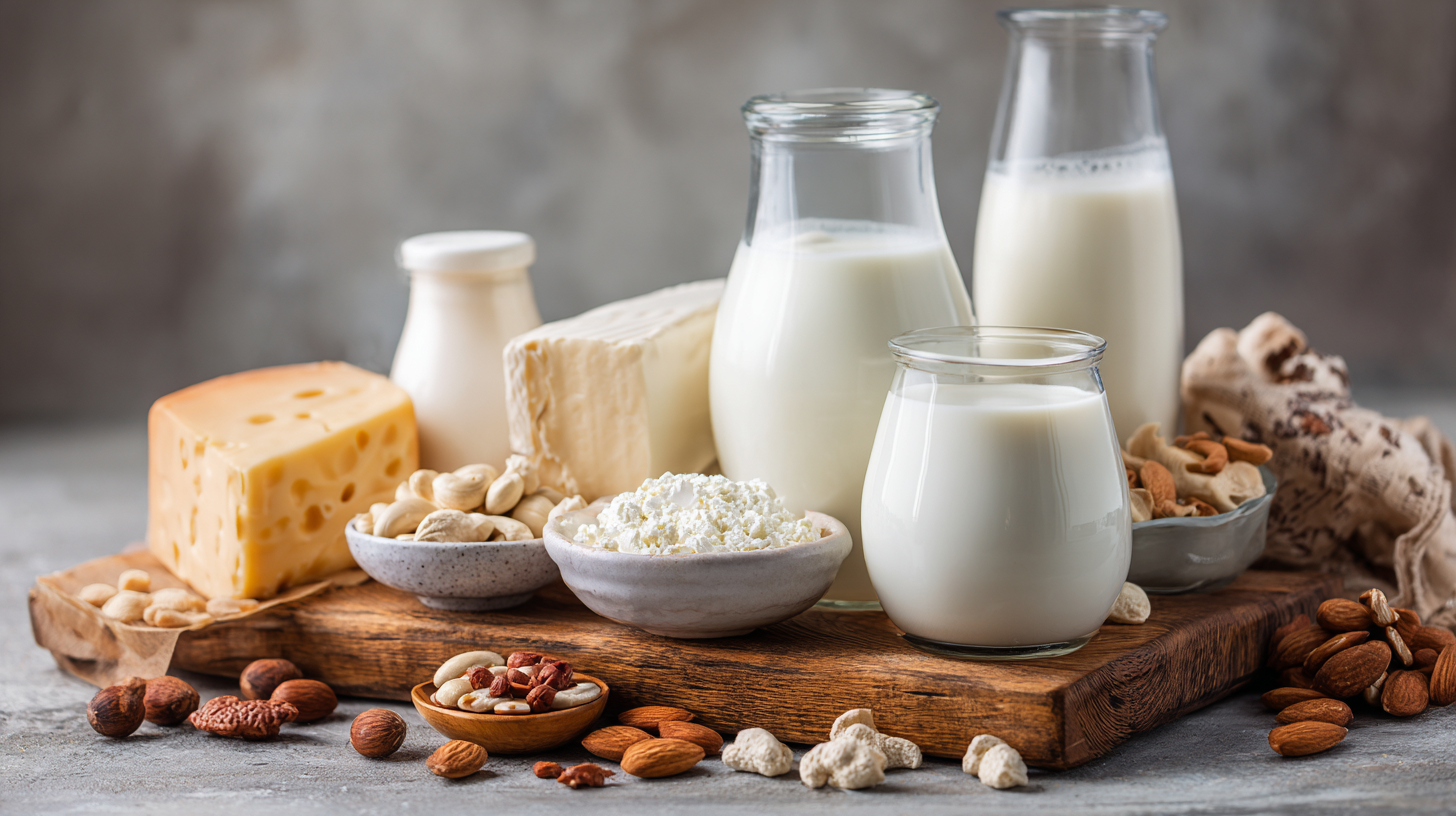
This article aims to guide consumers through the process of identifying high-quality dairy milk products tailored to their specific requirements. Whether you are looking for creamy texture, lower fat content, or alternative options due to lactose intolerance, understanding the nutritional labels and ingredient lists can empower you to make informed decisions. By evaluating key aspects such as fat content, added sugars, and fortification, you can discover the best dairy milk products that support both your health objectives and personal taste preferences. Join us on this journey to navigate the dairy aisle with confidence and purpose.
Understanding Nutritional Needs: Different Dietary Requirements for Dairy Consumption
When selecting dairy milk products, it’s essential to consider individual dietary requirements, as different people have unique nutritional needs. For instance, those with lactose intolerance may benefit from lactose-free dairy options, which still provide essential nutrients like calcium and vitamin D without the discomfort associated with lactose. Alternatively, individuals following a vegan lifestyle can explore plant-based alternatives fortifed with similar vitamins and minerals, ensuring they meet their nutritional goals while adhering to their dietary choices.
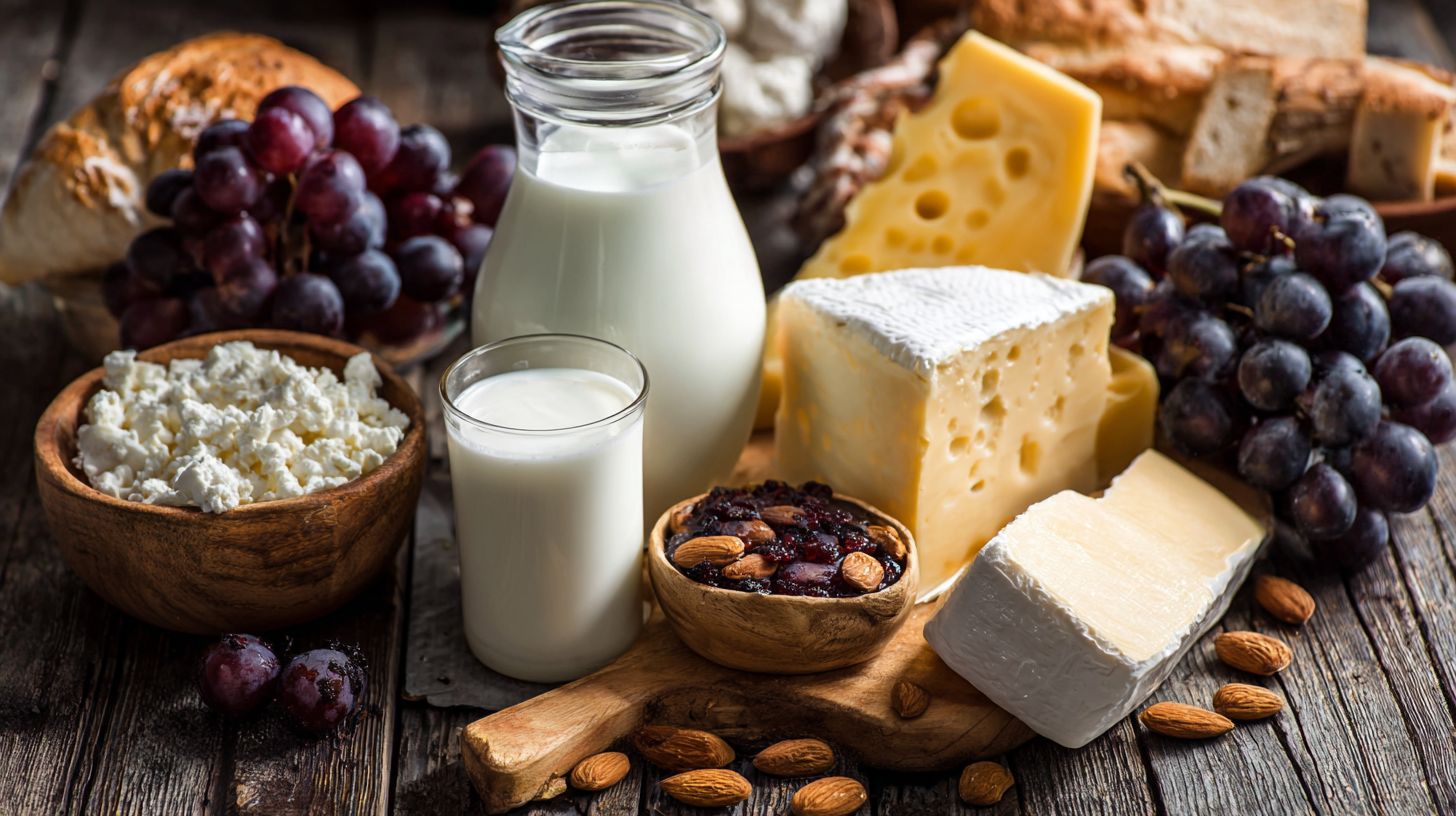
Additionally, dietary preferences may be influenced by age, health conditions, and activity levels. Children require higher fat content for growth and development, making whole milk a suitable choice. In contrast, adults looking to maintain weight or heart health might opt for low-fat or skim milk products. It's crucial to evaluate these factors and read labels carefully to choose dairy products that align with one’s health objectives while providing the necessary nutrients for a balanced diet.
Types of Dairy Milk: Comparing Whole, Skim, and Plant-Based Alternatives
When selecting the best dairy milk products for your health and lifestyle, it is essential to understand the differences among whole milk, skim milk, and plant-based alternatives. Nutritional comparisons reveal that cow's milk, particularly whole milk, often outperforms many popular plant-based options like oat milk. For instance, whole cow's milk typically contains about 8 grams of protein per cup, while oat milk generally contains only 2-3 grams. Additionally, cow's milk is packed with essential nutrients, offering calcium, vitamin D, and potassium, which are crucial for bone health and overall well-being.
On the other hand, while plant-based milks can be lower in calories, they often lack the complete protein profile that dairy provides. A recent report emphasized the nutritional importance of cow's milk, noting that many alternatives do not meet the same protein and nutrient density. For individuals with specific dietary needs, such as those managing diabetes, knowing how both cow's and plant-based milks affect blood sugar levels and nutrient intake is vital in making informed choices. Ultimately, understanding these differences can guide you in selecting the right milk product that aligns with your health goals and lifestyle preferences.
Comparison of Dairy Milk Types and Plant-Based Alternatives
Reading Labels: How to Identify Healthy Dairy Milk Products
When selecting dairy milk products, understanding how to read labels is essential for making informed health decisions. Health Canada reports that many consumers overlook vital nutrient information, which can lead to poor dietary choices. For instance, a cup of whole milk contains about 150 calories and 8 grams of saturated fat, while skim milk offers significantly fewer calories (approximately 80) and no saturated fat. This stark difference highlights the importance of scrutinizing fat content based on individual dietary needs.
Moreover, added sugars can be a hidden pitfall in flavored dairy milk products. The American Heart Association suggests that women should limit added sugars to 6 teaspoons per day, while men should restrict it to 9 teaspoons. Flavored varieties, like chocolate or strawberry milk, often contain up to 20 grams of sugar per serving, which can quickly exceed these recommended limits. Therefore, when choosing dairy products, look for labels that indicate "no added sugars" and check for whole food ingredients to optimize both flavor and health benefits.
Impact on Lifestyle: Choosing Dairy Milk for Active and Home-Cooking Lifestyles
When choosing dairy milk products, it's essential to consider how they fit into your active and home-cooking lifestyles. For those who lead a dynamic lifestyle, options like or protein-enriched milks can provide the energy and nutrients necessary to fuel workouts and daily activities. These products often contain added vitamins and minerals, aiding in recovery and overall health, making them ideal for individuals with high physical demands.
In the realm of home cooking, selecting the right dairy milk can enhance culinary creations while maintaining nutritional value. Full-fat milk offers creaminess and richness, perfect for baking and sauces, while almond or oat milk can serve as excellent alternatives for those with lactose intolerance or dietary restrictions. When incorporating dairy into meals, it's also wise to explore products fortified with probiotics, which support gut health and digestion, thus complementing a balanced diet tailored to a busy lifestyle.
By choosing dairy milk that aligns with both health needs and cooking preferences, you can nourish your body while enjoying delicious homemade dishes.
Sustainability and Ethics: Considerations for Eco-Friendly Dairy Choices
When considering eco-friendly dairy choices, it's essential to focus on sustainability and ethical sourcing. The organic milk market is on a steady rise, reflecting consumer preferences for chemical-free, sustainably sourced products. By 2033, the organic cheese market is projected to reach approximately USD 14.8 billion, indicating a robust demand for ethically produced dairy. This growth is driven by a generation increasingly aware of environmental issues, particularly among Millennials and Gen Z, who are prepared to support brands that align with their sustainability values.
Tips: Look for certifications such as USDA Organic or Fair Trade when shopping for dairy products. These labels can help ensure that the products are sourced sustainably and ethically. Additionally, consider incorporating plant-based alternatives into your diet; the rise of dairy alternatives, projected to reach USD 3.13 billion in the UK by 2033, showcases a growing trend that supports health consciousness and environmental sustainability.
As restaurants adapt to this trend, they are offering innovative vegan options that cater to a wide audience. Not only does this reflect a shift in consumer preferences, but it also supports the broader movement towards sustainable food practices. When making dairy choices, prioritize products from companies that practice regenerative agriculture, as they are key to promoting biodiversity and reducing carbon footprints in the dairy sector.
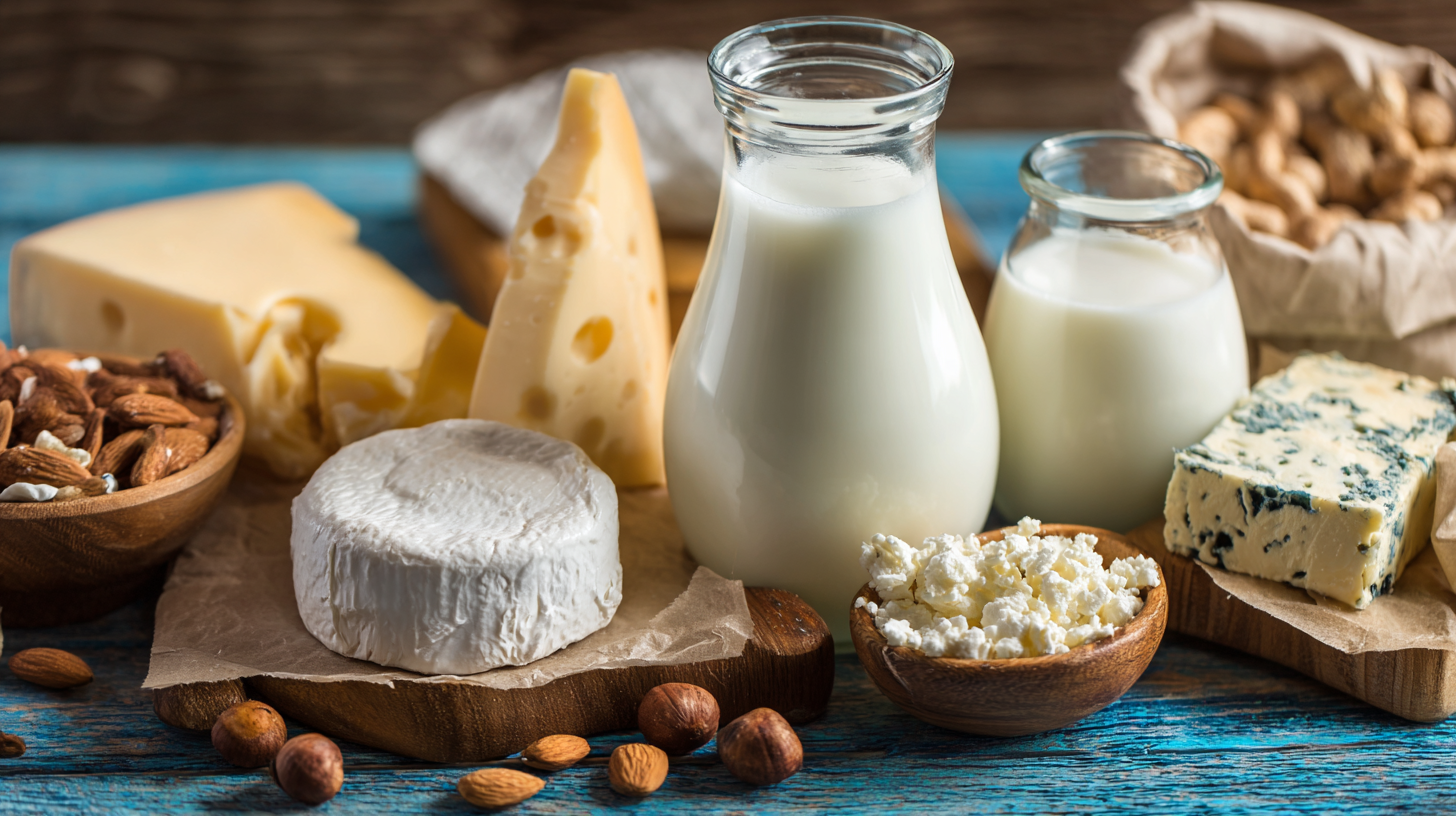
Related Posts
-

Exploring the Health Benefits of Consuming Diverse Milk Products in Your Daily Diet
-
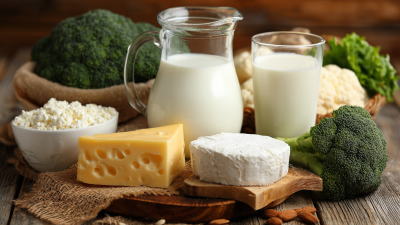
Discover the Best Dairy Products Online for a Healthier Lifestyle
-
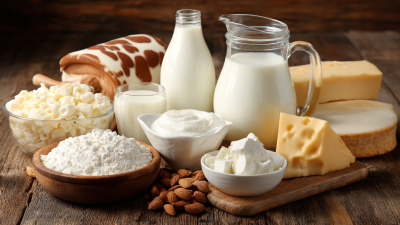
Exploring the Nutritional Benefits of All Dairy Products: What Recent Studies Reveal
-
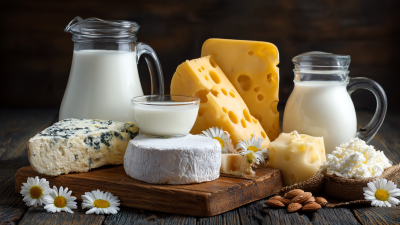
The Surprising Health Benefits of Incorporating Dairy Products into Your Daily Diet
-

Exploring Sustainable Products of Dairy Farming and Their Impact on Global Nutrition
-

The Future of Dairy Farming How Cow Milking Equipment is Revolutionizing Milk Production
